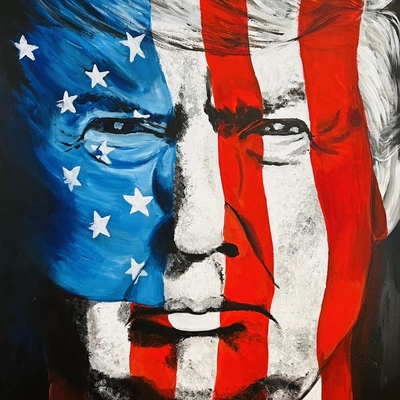Stay informed on the latest Truth Social posts from Donald Trump (@realDonaldTrump) without the doomscrolling. Consider it a public service for your mental health. (Why?)
- The United States and South Korea have agreed to a Full and Complete Trade Deal.
- South Korea will provide $350 billion for US-owned and controlled investments selected by the President.
- South Korea will purchase $100 billion in LNG or other energy products.
- South Korea will invest a significant sum for their own purposes, to be announced within two weeks during a bilateral meeting at the White House.
- South Korea will be completely open to trade with the United States, accepting American products including cars, trucks, and agriculture.
- A 15% tariff will be applied to South Korea, while America will not be charged a tariff.
- The new President of South Korea, Lee Jae Myung, is congratulated on his electoral success.
The post outlines a significant trade and investment deal with South Korea, including substantial financial contributions ($350 billion for investments, $100 billion for energy purchases) and opening markets for American goods. These terms, if implemented, could directly impact US companies in energy, automotive, and agriculture sectors, and the broader S&P 500 through increased trade volumes and investment flows.
The post describes a trade and investment agreement between two nations, emphasizing cooperation and economic benefits, which suggests a reduction in potential friction rather than an increase in geopolitical risk.
- Commodities: Oil (WTI) and natural gas (LNG) prices could be affected by the stated $100 billion purchase of LNG/energy products by South Korea, potentially boosting demand for U.S. exports. Other commodities like copper or agricultural products could see demand shifts due to open trade provisions. Short-Term Watchlist: LNG spot prices, U.S. energy export data. Medium-Term Focus: Global energy demand shifts, agricultural commodity prices.
- Currencies (Forex): The agreement's financial flows, including $350 billion for US investments and significant purchases, could strengthen the US Dollar (DXY) relative to the Korean Won (KRW) due to capital inflows and increased demand for USD. Short-Term Watchlist: USD/KRW exchange rate, capital flow reports. Medium-Term Focus: Trade balance shifts, central bank interest rate differentials.
- Global Equities: S&P 500, particularly energy, automotive, and agriculture sectors, could see positive impacts from increased exports and investments. Korean equities (e.g., KOSPI) could be impacted by the financial commitments and tariff structure. Short-Term Watchlist: Sector-specific stock performance (e.g., U.S. energy producers, auto manufacturers). Medium-Term Focus: Corporate earnings revisions, trade policy developments.
- Fixed Income (Bonds): Large capital inflows into the U.S. could influence Treasury yields, potentially leading to increased demand for U.S. assets. The 15% tariff on South Korea could alter trade flows. Short-Term Watchlist: U.S. Treasury yields, particularly 10Y and 2Y. Medium-Term Focus: Global liquidity trends, sovereign bond market stability.
- Volatility / Derivatives: The announcement of a major trade deal could introduce a period of reduced volatility for specific sectors benefiting from the agreement, but any perceived imbalance could also create uncertainty for affected Korean industries. Short-Term Watchlist: Sector-specific volatility indices. Medium-Term Focus: Overall market stability in relation to trade policy.
- Crypto / Digital Assets: No direct mentions to suggest immediate impact. Any indirect impact would likely stem from broader market sentiment shifts or changes in global liquidity, potentially treating Bitcoin (BTC) as a risk-on asset if general optimism increases. Short-Term Watchlist: BTC/USD correlation with equities. Medium-Term Focus: Macroeconomic liquidity and investor risk appetite.
- Cross-Asset Correlations and Systemic Risk: The deal, as described, is bilateral and focused on economic cooperation, reducing rather increasing systemic risk. It could foster positive correlations between the US and South Korean economies. Short-Term Watchlist: Flows into US and Korean financial assets. Medium-Term Focus: Regional economic stability, trade policy implementation.
- Retail Sentiment / Market Psychology: The announcement of a large, favorable trade deal could boost general investor confidence and potentially encourage retail participation in related sectors, particularly those highlighted (energy, autos, agriculture). Short-Term Watchlist: Social media sentiment around affected sectors. Medium-Term Focus: Retail investment trends in response to national trade policy.

